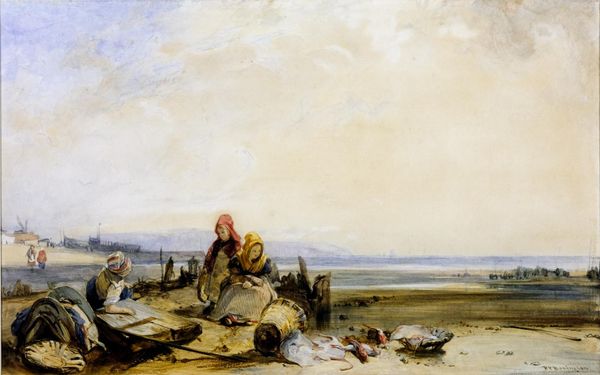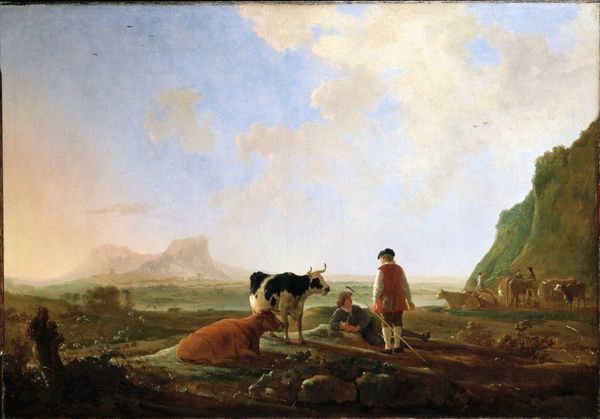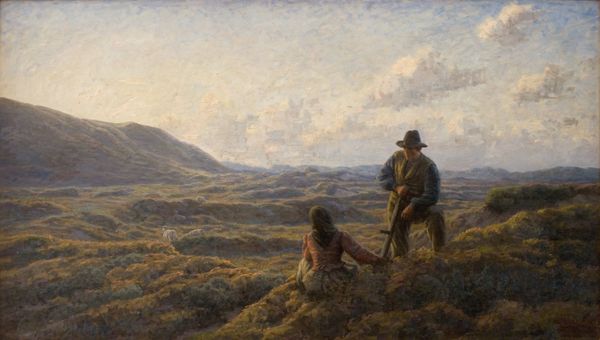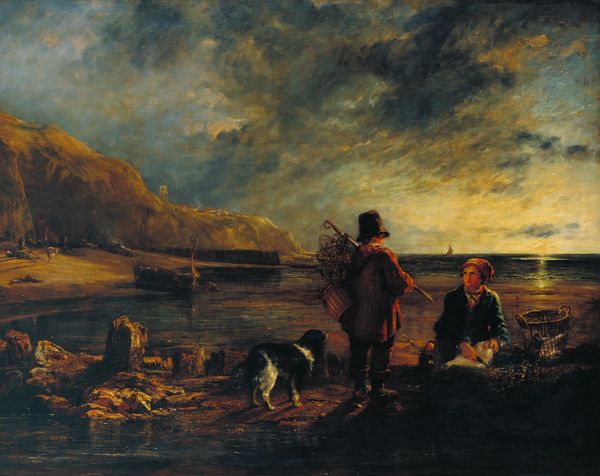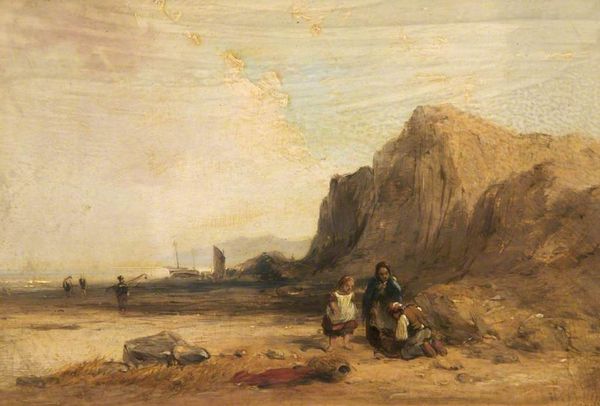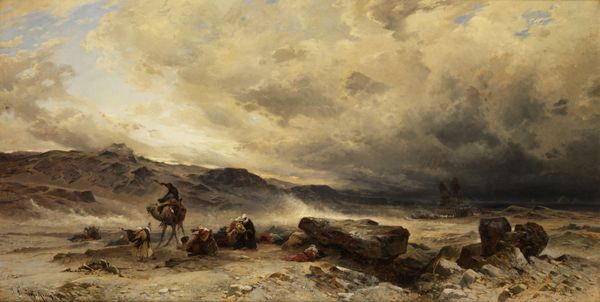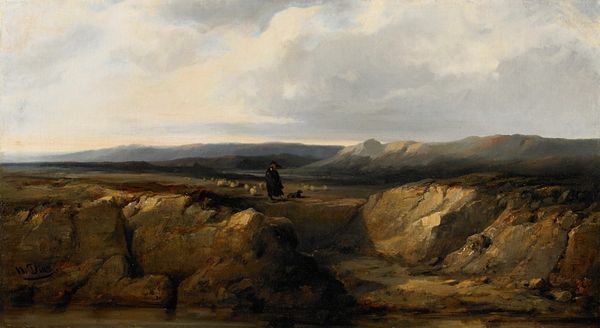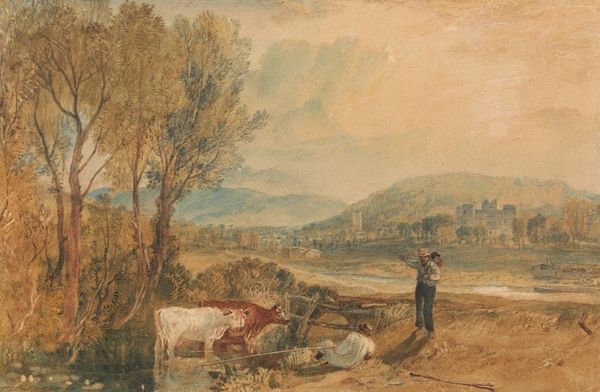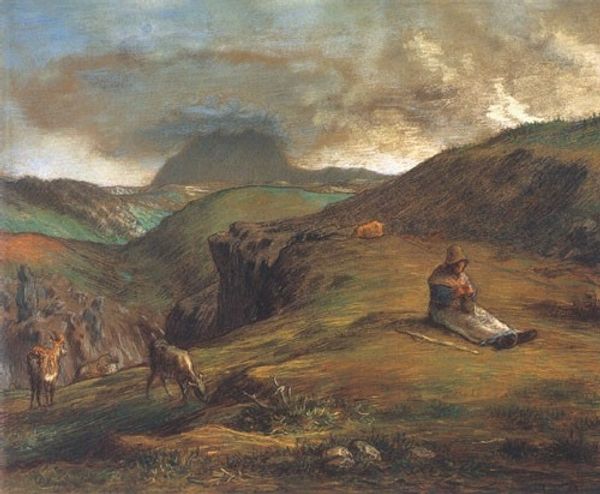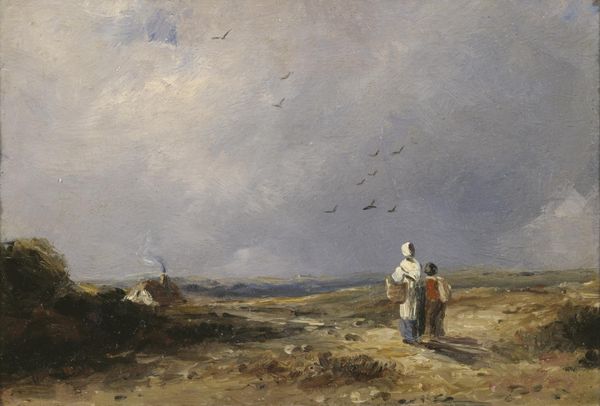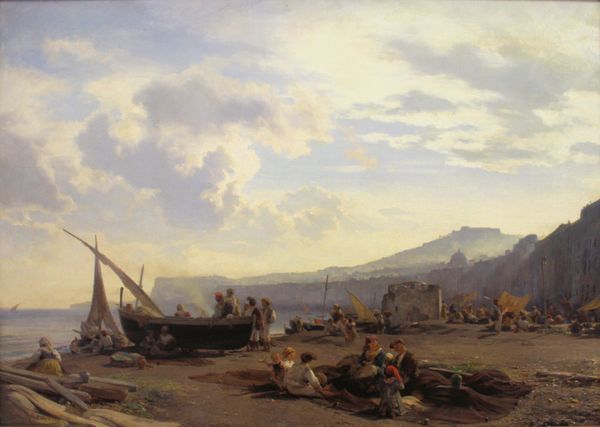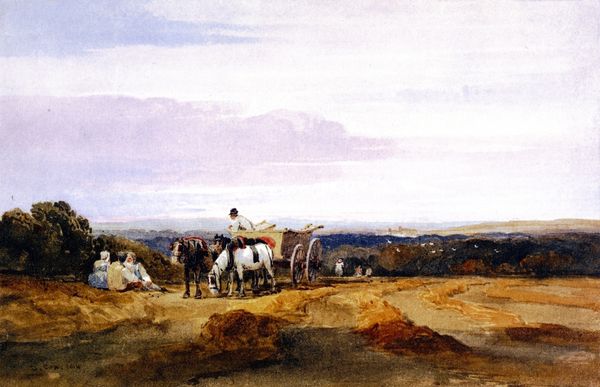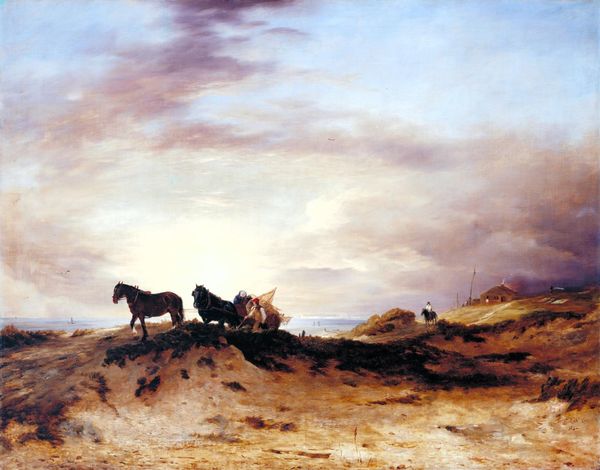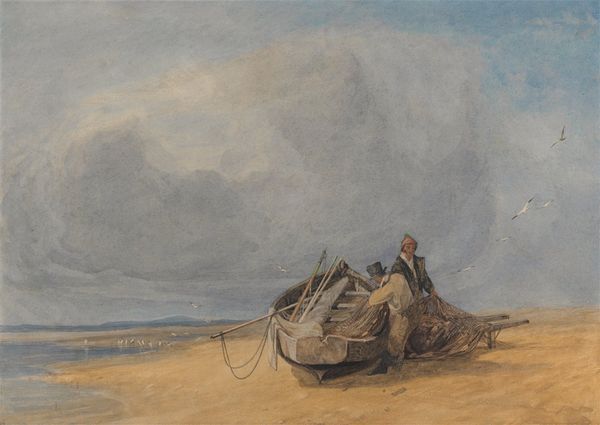
Dimensions: support: 435 x 584 mm
Copyright: CC-BY-NC-ND 4.0 DEED, Photo: Tate
Curator: William Collins, born in 1788, painted this oil on canvas, Prawn Fishing, now held in the Tate collection. Editor: I'm immediately struck by the feeling of childhood freedom and exploration. The figures almost blend into the landscape. Curator: The image of children by the seaside resonates deeply with the Romantic era’s embrace of nature and childhood innocence. I wonder if Collins was also critiquing the era’s harsh labor laws for children. Editor: Perhaps. But I see universal symbols here: the sea as the unconscious, the fishing net as a metaphor for capturing elusive dreams. Curator: A compelling point. I think Collins captured a fleeting moment of both joy and perhaps a quiet commentary on societal expectations. Editor: Absolutely. It's a glimpse into childhood dreams, framed by the symbolic power of the sea.
Comments
Join the conversation
Join millions of artists and users on Artera today and experience the ultimate creative platform.
tate 10 months ago
⋮
Prawn Fishing was inspired by Collins’s trip to the Isle of Wight in 1827. Although it was painted entirely in his London studio, Collins’s handling of the landscape still retains the freshness of his outdoor oil sketches. This can be attributed to a resolution he made after the artist Sir William Beechey criticised his slow working practice. Collins resolved to paint with ‘less timidity and anxiety; as nothing can replace the want of that vigour and freshness, which things done quickly (with a constant reference to Nature) necessarily possess’. Collins was the father of the novelist Wilkie Collins. Gallery label, September 2004
